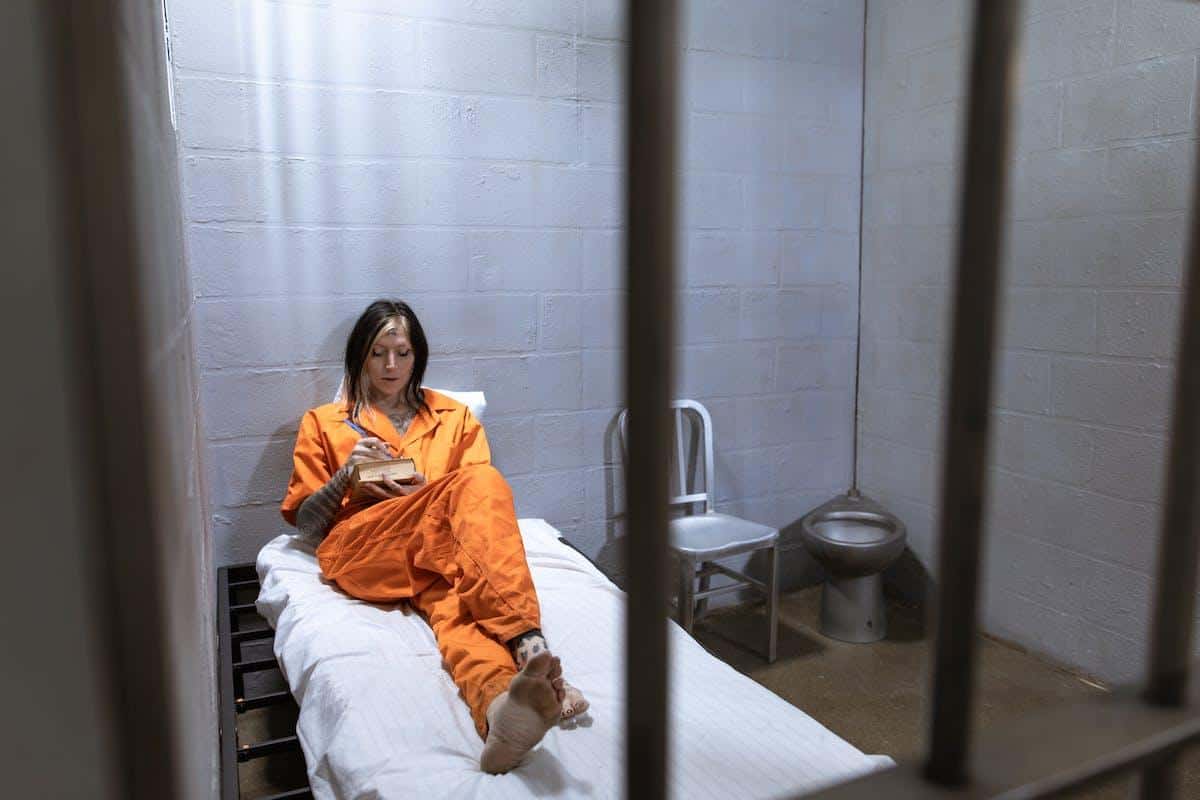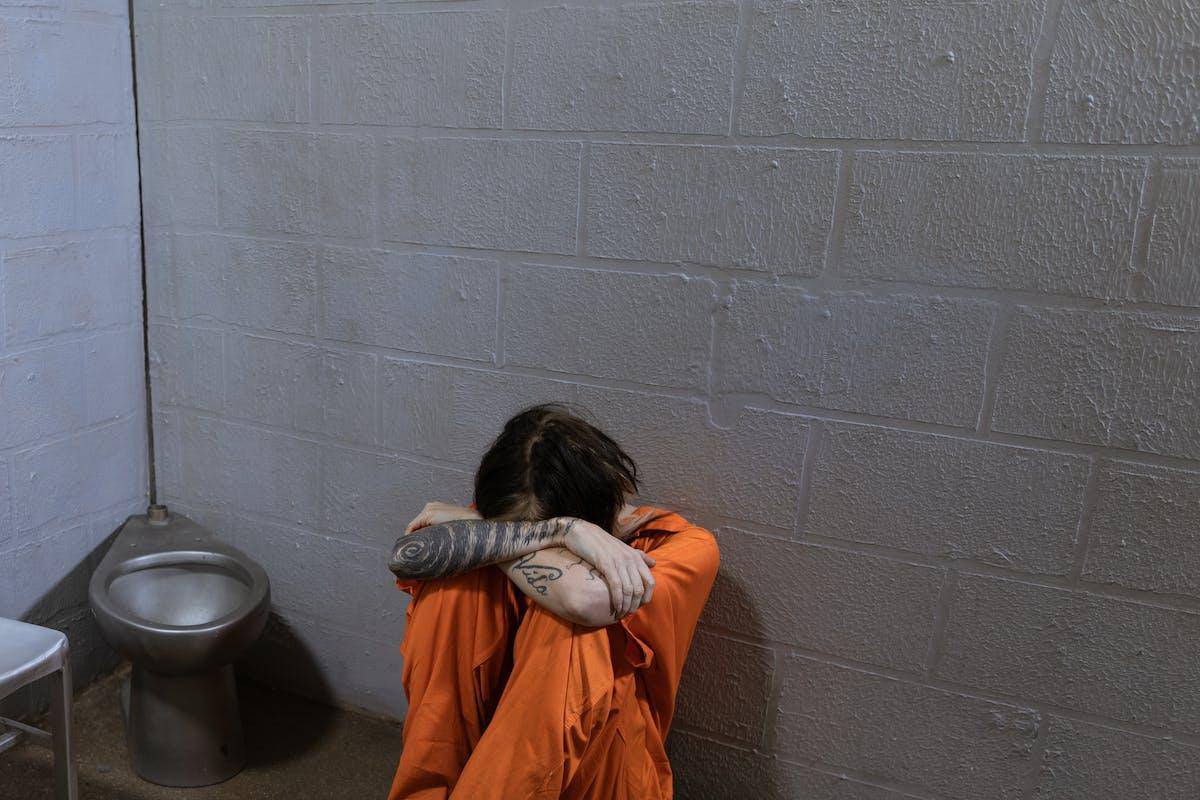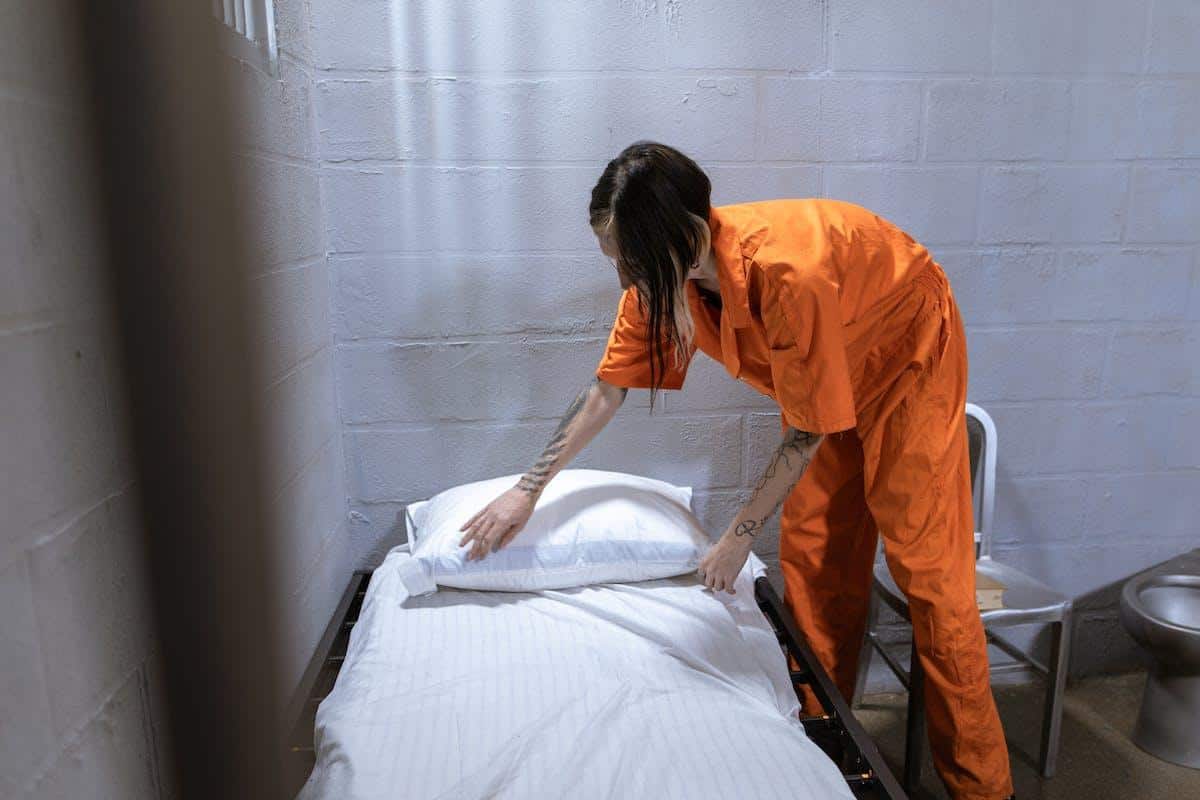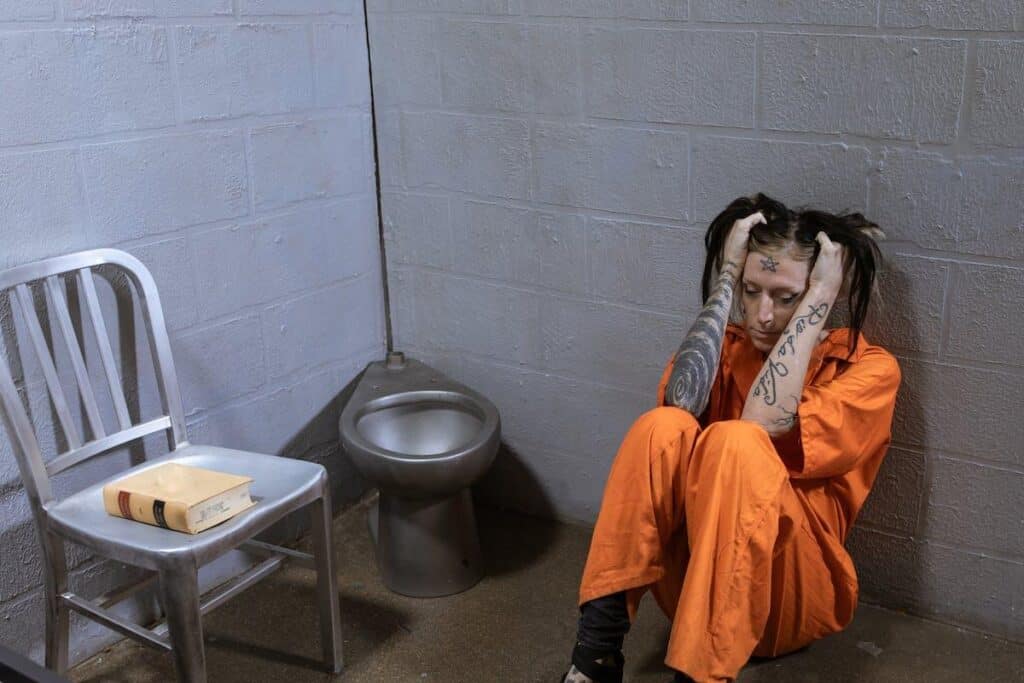In the realm of criminal justice, the topic of prisoner rights Orange County CA carries significant weight. This Southern Californian region represents a microcosm where the impact of criminal justice policies meet an intersection where law, ethics, and human dignity collide.
Prisoner rights are often overlooked or dismissed by many in society yet understanding and advocating for these rights forms a key aspect of any country that values fairness and human decency. The journey toward championing prisoners’ rights is not easy, but it is indeed a cause worth fighting for.
At first glance, it may seem strange to discuss prisoners’ rights. After all, these are individuals who’ve been convicted of crimes and are serving time as a punishment for their offenses.
However, it’s essential to remember that being incarcerated does not eradicate an individual’s basic human rights or entitle them to be subjected to undignified treatment or conditions. Understanding the current state of prisoner rights in Orange County, California holds substantial importance in charting out a course towards reform and progress.
The dichotomy in advocating for prisoner rights lies in balancing between punishment for crime and protecting basic human dignity. This interplay necessitates exploring critical issues prisoners face – from overcrowded prisons to inadequate health facilities and brutalizing circumstances amongst others; it charts heartbreaking tales that inspire you to champion for change.
As we delve deeper into the subject of prisoner rights within Orange County prisons, we aim to provide an enlightened perspective that goes beyond merely punishing criminals but seeks ways to turn them into productive citizens deserving equal respect under the law.
The Current State of Prisoner Rights in Orange County, CA
Understanding the current state of prisoner rights in Orange County, California, is paramount for comprehending the magnitude and influence of advocacy work done in this area. An interesting blend of progressive ideals on one side and stringent law enforcement traditions on the other has led to a polarizing landscape regarding prisoner rights within the county.
Currently, significant legal issues like overcrowding in prisons, harassment and abuse by correctional officers, limited access to critical healthcare services, including mental healthcare provisions and substandard living conditions are rampant challenges faced by inmates.
Overcrowding in prisons has been a persistent issue affecting prisoner’s rights for quite some time now. Regarding numbers, Orange County was at 132% capacity as per the last census report dated January 2019. Overcrowded prisons result in unsanitary living conditions for inmates who find themselves squeezed into cells – typically designed for fewer people – which violate their fundamental human rights. It also limits prisoners’ access to rehabilitation programs as resources become strained with higher inmate numbers.
Another glaring violation of prison rights involves harassment and physical abuse by correctional officials. National Police Misconduct Reporting Project (NPMRP) 2018 denounced several cases of abuse, neglect and even deaths resulting from mistreatment inside Orange County jails.
Furthermore, the lack of effective measures to counter such misconduct exacerbates the problem. Limited access to adequate medical care services further escalates these issues as it often leads to severe complications or even death among prisoners with prior health conditions or those injured during altercations.
| Concern | Impact |
|---|---|
| Prison Overcrowding | Substandard living conditions impacting prisoner’s basic human rights. |
| Harassment & Abuse | Inhumane treatment of inmates leading to severe physical injuries or even death. |
| Limited healthcare Access | Further risk to prisoner’s health with a potential surge in death rates. |
The Legal Framework
Understanding Prisoner Rights as Per the Law
Prisoner rights, as outlined by U.S federal and state laws, exist to protect the dignity and safety of those incarcerated. They encompass a broad range of protections. These include but are not limited to, the right to humane facilities and conditions, a restriction on cruel and unusual punishments, freedom from sexual harassment or sex crimes, access to rehabilitation programs, plus the right to voice complaints about prison conditions.
While it’s perturbing how often these rights are violated nationwide, California has its own unique set of breaches within its prison system. For instance, overcrowding in Orange County prisons had been a long-standing issue that escalated into what is known as the “Plata v. Brown” mandate – a landmark ruling that ordered California officials to reduce prison populations in order to provide all inmates with constitutionally adequate healthcare services.
This deep-seated issue points toward systematic neglect and defiance of prisoner rights at all levels; it clearly affirms their requirement for protection but also stands testament to the hurdles these individuals face when attempting to exercise them.

The Reality Inside Orange County Prisons
While legislature lays out an ideal picture of prisoners’ lives behind bars being marked by dignity and adequacy of basic human needs – this picture begins to blur once one steps into Orange County prisons – stark vignettes of crowding cells replace images of humane living conditions while inadequate mental health resources shroud any semblance of proactive rehabilitation initiatives.
Orange County has faced numerous lawsuits concerning inadequate medical care for prisoners suffering from physical health complications like untreated hernias and cancers; some reports also shed light on improper or delayed mental healthcare leading potentially towards dangerous outcomes including increased potential suicide risks amongst inmates.
Assessment studies designed by independent agencies have shown an inconsistent delivery model of healthcare which usually arrives too late by general standards – highlighting perhaps more than anything else – that our understanding of prisoner rights needs to transition from paper law to pragmatic execution within the prison environment.
Violation of Inmates’ Rights: A Recurring Concern
A flourishing legal framework elucidates and guarantees specific human rights for inmates, yet violation of these very rights within Orange County’s prisons remains a recurring concern. Instances of excessive force and solitary confinement, barriers to education and rehabilitation, inadequate nutrition and unsanitary conditions-in essence, breaches that ride roughshod over constitutional law-underscore the disheartening gap between prescribed legislation and its real-life implementation.
The Constitution’s Eighth Amendment prohibits cruel and unusual punishment, yet numerous lawsuits have highlighted episodes where it has seemingly been flouted inside county jails. Reports regarding sexual misconduct by correctional staff resonate as some the most egregious forms of such violations – creating both physical and psychological wounds that deepen the trauma which incarceration brings along.
Inextricably linked with this deficiency is another ignored right-the option to voice complaints against prison conditions without retribution-an access which detainees have reported as notably restricted in practice. Echoing discontent without fear isn’t an assured liberty here as a result some inmates bear breaches silently – aggravating this cycle where rights are more an illusion than a reality.
The Battle for Justice
Several landmark trials in Orange County, California have shaped the course of prisoner rights movements within the region. Among these is the crucial case of ACLU v. County of Orange in 2008, a class-action lawsuit that scrutinized medical and mental health care provided to inmates at the county jails.
The American Civil Liberties Union claimed that neglect and insufficient care violated the eighth amendment right of prisoners against cruel and unusual punishments. After a decade-long struggle, an agreement was reached to improve healthcare services for inmates emphasizing mental health – a large step forward in legally acknowledging inmate wellbeing.
Another pivotal case was the debate around solitary confinement in 2013 where local advocates rallied against excessively punitive solitary confinement methods practiced routinely on jail inmates. The conditions stirred outrage as they violated both state-level definitions of humane treatment as well as international human rights guarantees, often leading to severe psychological traumas on isolated inmates. This campaign catalyzed change towards limiting solitary confinement usage within the local prison system and set a precedent for reform across California.
Moreover, in 2014 Prison Legal News had sued Orange County’s Sheriff over censorship issues after mails with contenent promoting prisoner rights were returned or discarded without reason violating their first amendment rights, which include free speech even for incarcerated individuals. Victory in this case reflected another win not just for prisoners but also those advocating for their rights.
| Case | Year | Allegation | Outcome |
|---|---|---|---|
| ACLU v. County of Orange | 2008 | Neglected medical & amp; mental healthcare services | Signed agreement to improve inmate healthcare, specifically mental health provision. |
| Solitary Confinement Case | 2013 | Inhumane solitary confinement conditions | Curve downward in the usage of solitary confinement within county prison system. |
| Prison Legal News v. Orange County’s Sheriff | 2014 | Censorship Issues | Affirmation of prisoners’ constitutional right to free speech, fostering communication in advocating rights |
These trials reflect the importance of collective effort through legal channels in challenging, disrupting, and transforming oppressive practices within jail systems. The impact is extensive, decimating norms that normalize injustice and steering a path for prison reform built on respect, empathy and human dignity.
Case Studies
The lives of those who are or have been incarcerated often seem like distant realities to many people. Yet, when we explore these stories in light of championing prisoner rights, we can truly comprehend the transformative power of advocacy and reform. Through the lens of their narratives, we see a powerful affirmation that it is indeed possible to empower individuals even within the confines of correctional institutions.
The Story of John Brown
John Brown*, a former inmate at one of Orange County’s facilities shares his own tale. On his arrival, John found himself immersed in an environment where basic rights such as healthcare, fair treatment by staff and access to legal resources seemed farfetched dreams. Exposure to constant verbal abuse and physical threats became his daily reality. However, due to the intervention by an advocacy group that fought for prisoner rights in Orange County:
- He received legal representation which highlighted malpractices within the establishment fostering future policy changes.
- An external inspection led to disciplinary action against abusive staff members.
- He was provided continued mental health support post prison life aiding him successfully reintegrate into society.
This is but one example and there are countless other stories similar to John’s that highlight real change resulting from advocacy work.

Beyond Bars: Organization Leading Reforms
One cannot discuss empowerment stories without mentioning ‘Beyond Bars,’ a nonprofit organization with a mission of empowering prison inmates through education and skill development programs. Their significant contributions include.
- Initiating reading programs which have significantly improved literacy rates amongst prisoners.
- Mentoring schemes where established professionals guide prisoners planning reforms in their personal and professional lives post release.
- Lobbying for educational grants for deserving incarcerated individuals leading universities offering correspondence courses at subsidized rates.
Their work demonstrates how organizations can play an integral role in shifting systems whilst simultaneously providing immediate support and empowerment to individuals most affected by these systems.
These are just a snippet of the inspiring stories of empowerment within the Orange County prison system. Each tale, each organization amplifies the message – advocating for prisoner rights does empower lives. The narratives also underscore that everyone has a crucial role to play, be it providing emotional support, raising awareness about prisoner rights or directly advancing policy change.
*Name has been changed to protect the individual’s identity.
Advocacy Groups
In Orange County, a network of advocacy groups act as champions for prisoner rights. They are defined by their commitment to fair and equitable treatment for individuals within the prison system. Among these organizations, groups like the American Civil Liberties Union (ACLU) of Southern California and the California Prison Focus tirelessly work towards generating awareness about prisoners’ rights, providing legal assistance and lobbying for policy changes.
The ACLU of Southern California has consistently spearheaded campaigns related to prison reform and detainees’ rights. Their work principally focuses on addressing systemic issues within Orange County prisons such as extreme isolation, overuse of force, discriminatory practices and more. Over the years, they have been instrumental in pursuing legal actions against instances where human dignity and legal rights were compromised. These initiatives altered harmful policies and contributed significantly to preserving prisoners’ constitutional rights.
Another influential organization fighting for prisoners’ welfare is the California Prison Focus. This group shines a spotlight on inhumane conditions in state prisons with a special focus on long-term solitary confinement practices. Through investigative reporting, litigation support, education initiatives and community partnerships, this group has played a crucial role in exposing detrimental prison conditions.
There are several other non-governmental organizations (NGOs) that spectators can get involved with to champion prisoner rights:
- Families United to End LWOP (Life Without Parole): An advocate for alternatives to life sentences without parole.
- The Sentencing Project: A group focused on highlighting racial disparities within sentencing procedures.
- ACLU National Prison Project: A dedicated branch that works nationwide to ensure incarceration is just and humane.
These organizations provide myriad ways for individuals interested in championing prisoner’s rights to contribute meaningfully – through donations, volunteering or active participation in campaigns. Their work combats widespread injustices faced by prisoners, shaping an evolved understanding of imprisonment beyond punishment – towards reform and dignity.

A Call to Action
Getting Involved With Advocacy Groups and Initiatives
Fostering positive change often begins with direct engagement, touchpoints that translate into meaningful action. Advocacy groups committed to restoring and protecting prisoner rights are constantly seeking to partner with individuals who share their passion for justice. Existing groups in Orange County, such as the American Civil Liberties Union (ACLU) of Southern California or the Prison Law Office, offer diverse opportunities for interested inhabitants to contribute their time, skills, and resources.
First-time volunteers might initiate their advocacy by educating themselves on the sophisticated aspects of prisoner rights so they can disseminate correct information within their network. Participation could also be as straightforward as attending rallies or signing petitions. Aspiring contributors might consider taking up paraprofessional roles such as research assistants, community outreach workers, or legal aides working under experienced attorneys navigating intricate legalities surrounding prisoners’ rights.
Proactive Involvement in the Community
In addition to associating with established organizations, there are other ways you can advocate for prisoner rights at a grassroots level within your own community. Creating or joining local prisoner rights platforms is a tangible way of voicing out your concern while spreading awareness on issues faced by inmates.
This could take different forms depending on what would most resonate in your neighborhood – it could be panel discussions, film screenings highlighting prison injustices, weekly study circles breaking down legislative nuances concerning custody law, or dedicated book clubs focused on literature exploring the prison-industrial complex.
You could also aim to influence policy by establishing strategic connections with local governing bodies and representatives responsible for prison oversight. Mobilize residents around pressing matters by drafting letters to elected officials urging them for reformative legislation.
Your Role: Championing Prisoner Rights
It’s important to have an inclusive vision about advocating for prisoner rights – it’s not just about freeing individuals from physical bars but providing them with an equal opportunity to lead dignified lives upon their release. Social reintegration programs are crucial in reducing recidivism rates and assisting former inmates return to normalcy. This might involve volunteering for educational programs, job training workshops, mental health services and facilitating affordable housing.
Simultaneously, it’s essential to challenge the prevailing narrative around incarceration by endorsing more restorative justice approaches versus punitive ones. Anyone can champion these rights – from students to professionals, artists to engineers. Each voice adds value and propels the wheel of change forward. The future of this advocacy hinges on collective resolve and sustained engagement in amplifying prisoner rights – a journey towards empowerment open for all.
Conclusion
The future of prisoner rights in Orange County, CA may remain uncertain, but the dedicated work by passionate advocacy groups and individuals provides hope for a better tomorrow. The journey forward will undoubtedly be filled with inevitable challenges, where every victory will mark a significant stride in the fight for justice.
As more people become aware of the plight of these prisoners and pledge their support for ensuring their fundamental rights are upheld, we move closer to an envisioned system that reflects the core principles of fairness, respect and dignity.
Our collective action can lead to transformative changes within our current prison system. We must remember that each small step taken towards raising awareness about injustice contributes to laying down the groundwork needed to champion these rights effectively. Whether it is supporting existing advocacy groups or sparking dialogues in our circles about this pressing issue, every action will serve as an effort towards empowering prisoners and aligning our justice system with humanitarian standards.
We must strive to maintain momentum on this journey forward. Not simply by acknowledging prisoner rights but actively standing up for them when challenged or violated.
Let us renew our commitment to fostering a climate where every individual within the prison system is accorded human rights and liberties they are entitled to without discrimination. Together we can make a difference, joining efforts in championing prisoner rights not only in Orange County but all across America – creating ripples of positive change that extend far beyond prison bars.
